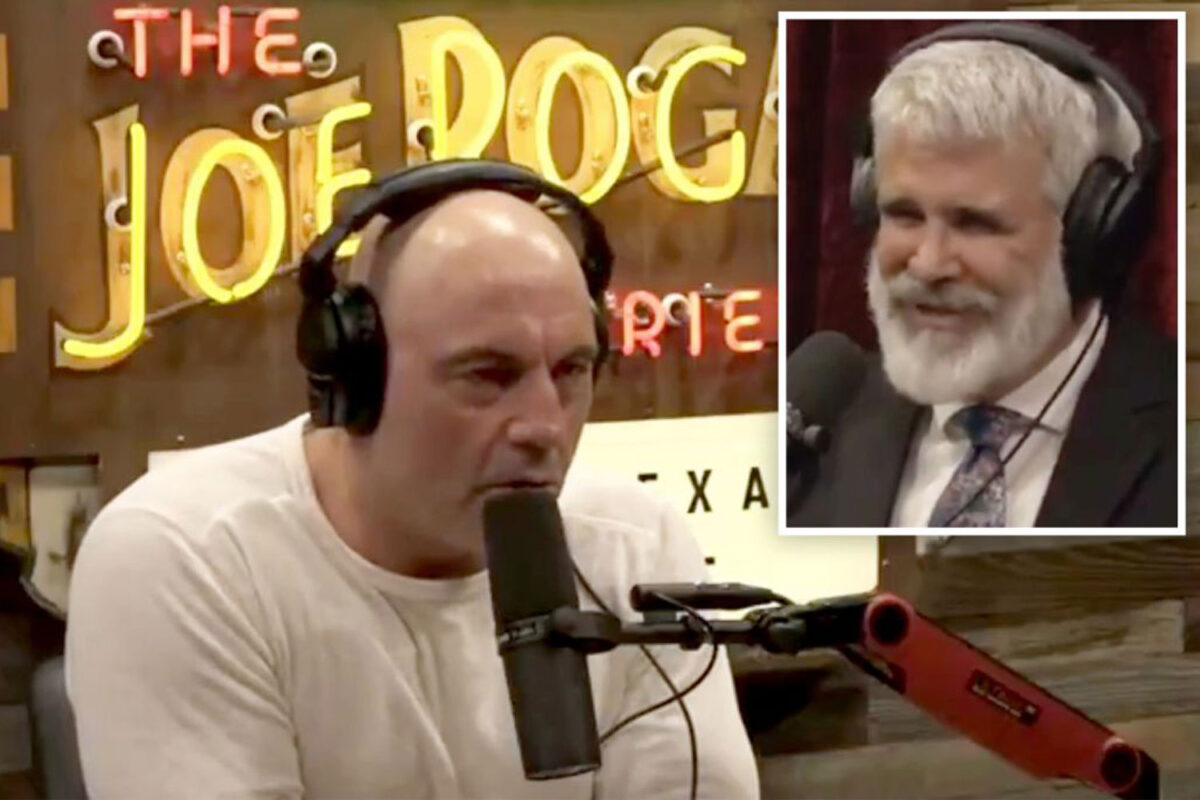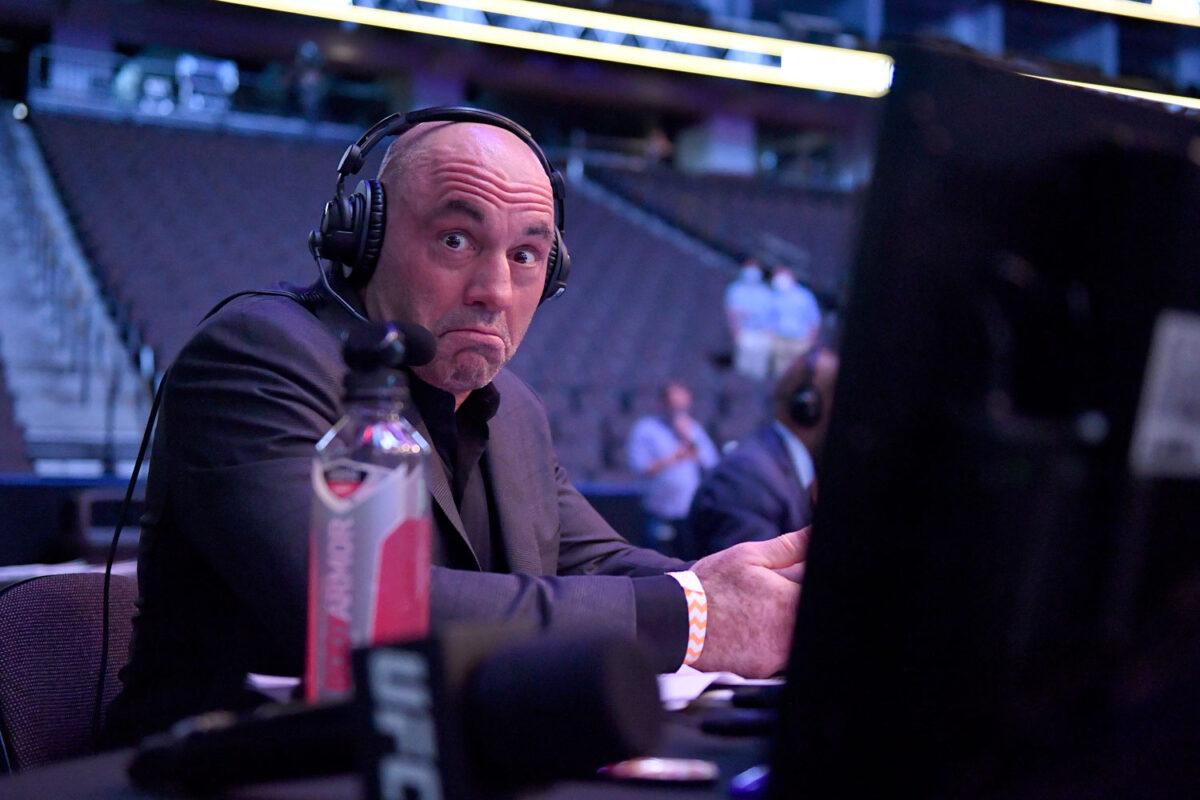Spotify made waves around the world in 2020 when it signed the globe’s biggest podcaster – Joe Rogan – for US $100 million. The deal meant that all new episodes of The Joe Rogan Experience would appear exclusively on Spotify, and Spotify would be able to upload all of Rogan’s old content to its platform (minus a few, which it decided to spike).
Speaking of things Spotify doesn’t want, the streaming service also created a bunch of problems for itself when it took on Joe Rogan and his (estimated) 11 million listeners per episode. How so? Rogan regularly creates headaches for Spotify in two ways. Firstly: by inviting controversial guests onto his show. Secondly: by airing his own ‘layman’ opinions on controversial topics (some view this as Rogan simply enjoying his uncontroversial right to “think out loud,” and others – typically those who disagree with Rogan’s opinions – view this as irresponsible at best and bigoted at worst).
Essentially, his fans characterise any attempt to steer him in a certain direction as hysterical censorship, and his detractors – or those with different world views to Rogan – often characterise him as a money gobbling menace to public health, who needs to be muzzled. Then there’s a third school of thought which is that it’s great Rogan is interviewing a wide variety of people, but that to do it responsibly he needs to challenge those with potentially dangerous ideas much harder.
What Culture put it well when they said: “Depending on your belief, The Joe Rogan Experience is either a format where the masses can be misinformed and therefore misled by a myriad of ‘bro-science’ or a platform where public figures, with differing views and opinions, can share their messages with the world all in the name of entertainment and dialogue.”
This tension point has always been there, with Rogan previously inviting controversial figures like Alex Jones (who has been banned by Youtube, Facebook and Apple) onto the show. The tension has hit new levels, however, during the pandemic, with Rogan inviting the likes of Dr Robert Malone – a vaccine scientist who The Washington Post and The Atlantic (among many others) report is spreading vaccine misinformation and scepticism – onto the show.

Canadian-American singer-songwriter Neil Young is one of those who is very much against Rogan’s air-timing of vaccine-sceptic views. The musician made waves this week when he told his management and record label to tell Spotify that he didn’t want to have his songs available on the same platform that was offering Joe Rogan’s podcast.
As the ABC reports, “Earlier this week, Young published a letter addressed to his manager and record label, Warner Music Group , accusing Rogan of spreading misinformation about COVID-19 vaccines, and demanding that Spotify no longer carry his music.”
Then, on Wednesday, Young thanked his record label for “standing with me in my decision to pull all my music from Spotify,” and encouraged other bands and songwriters to do the same.
Young’s website called Rogan’s podcast “lies being sold for money” and said “I realised I could not continue to support Spotify’s life-threatening misinformation to the music-loving people,” the ABC reports.
Spotify said it worked to balance “both safety for listeners and freedom for creators” and had removed thousands of podcast episodes related to COVID-19 in accordance with its “detailed content policies.” It has decided, for the time being, though, to keep Rogan, and to remove Young’s music, as per his request.
“We regret Neil’s decision to remove his music from Spotify, but hope to welcome him back soon.”
Since this move, many have called for other musicians to follow suit. If this were to happen, Spotify would have a rather larger problem than $100 million on their hands. As it currently stands, however, no huge names have as of yet stepped up to the plate to follow Young. Spotify has done the maths, it seems, and decided Rogan hasn’t contravened their policies (they reckon) and so they are allowing him to remain a $100 million dollar problem (and remain on their platform).
They won’t participate because Spotify basically has a monopoly on the distribution side of the entire music industry. That stranglehold will keep them in check. I don’t know anybody but myself that still has CDs or even uses iTunes. https://t.co/RljbJGXapT
— Lard of Dorkness (@LardFDorkness2) January 27, 2022
Veteran rockers aren’t the only ones unimpressed with The Joe Rogan Experience. At the beginning of January, 270 scientists and medical professionals signed a letter urging Spotify to take action against Rogan, accusing him of spreading misinformation. Also in January, Australian journalist Josh Szeps appeared on Joe Rogan’s podcast, and fact-checked him on one of the common vaccine-skeptic talking points Rogan had clearly had buzzing around his head since his conversation with vaccine scientist and accused misinformation spreader Dr Robert Malone.
RELATED: Is Joe Rogan A Menace To Public Health Or A Modern Day Plato?
Szeps also, however, appearing on an Australian news podcast after his appearance on Rogan’s podcast, came to Rogan’s defence, and said he didn’t believe Rogan to be a deliberate spreader of misinformation.
He told The Briefing: “What I wasn’t expecting [with Joe Rogan] was any conversation about myocarditis and the side effects of vaccines. I wasn’t at all prepared for that but it was a three-hour conversation. These sorts of things come up and he mentioned something and I knew it was a right-wing talking point and I knew it was something he was concerned about. But the ‘Josh Szeps slaps down Joe Rogan’ moment that went viral was frankly a fluke.”
The Briefing host Tom Tilly then said: “So this is a classic case where you can misuse information to scare people about increased risks from the vaccine but not contextualise it properly and you were able to call him out on this. So I wonder – he doesn’t really have many arguments left about the vaccine so it was really interesting to hear you do that.”
Szeps responded: “Joe gets a lot of criticism for being an anti-vaxxer or a spreader of vaccine misinformation. My take on him is that he’s a comedian, he’s an ultimate fighting commentator, he’s just a nice bloke who sort of is interested in having conversations with people from all across the aisle and is interested in having conversations with people specifically who contradict conventional narratives or who question what everyone else believes. So in the context of vaccines there are skerricks of truth – he’s not a person who is pumping out vast quantities of knowingly false material.”
Tilly replied: “That’s a really good argument and you’re right – the sort of subcultures of certain companies could then dictate all kind of rules and stuff that we don’t want to sign up to… but I guess that debate has really been tested during the COVID era because it’s life and death, it’s not a hypothetical.”
Szeps then said: “I agree these are grey areas and if someone was a persistent and aggressive firehose of nonsense then at some point you would want them to appeal to basic standards of logic, decency and fact. But as I said earlier I think in this particular instance what you’ve got is someone who is interested in having conversations with dissenters – and in my case he just bumped up against someone who is not a dissenter on this particular question of vaccines.”
Read more about their debate here.
Read Next
